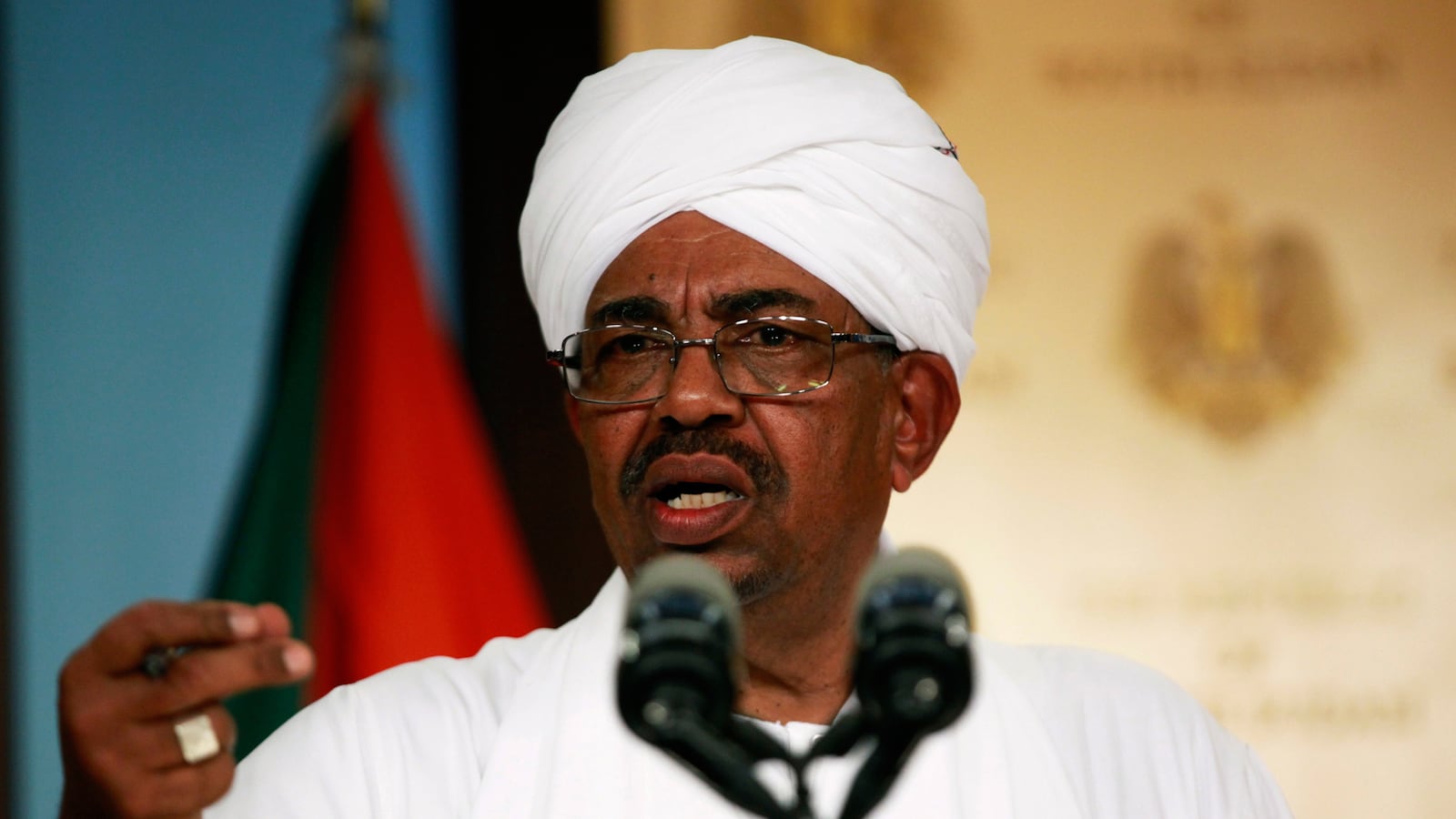President Obama is in South Africa honoring human rights champion Nelson Mandela today, but back in Washington, a leading Sudan advocacy group is criticizing Obama’s record on protecting Africans in danger.
“In 2007, Mr. Obama said that genocide is ‘a stain on our souls’ and promised, ‘As president of the United States I don’t intend to abandon people or turn a blind eye to slaughter.’ Yet, according to Act for Sudan in the fifth year of his Presidency, he continues to oversee a disastrous approach to the ongoing genocide in Sudan,” the group will say in a Tuesday press release, timed to coincide with the annual celebration of Human Rights Day. “This approach has failed to prevent the tragic loss of countless civilian lives and the mass displacement and starvation of countless more innocent people. According to the national alliance, President Obama should develop a new pro-democracy and civilian protection-oriented policy on Sudan.”
Two years after South Sudan declared its independence on July 9, 2011, the region is still turbulent. Violence in both Sudan and South Sudan is raging, particularly in the regions of Jonglei, Darfur, South Kordofan, and Blue Nile. Over 100,000 people have been driven from their homes so far this year in Jonglei alone.
Sudan advocacy groups have viewed Obama’s Sudan policy as too conciliatory to the regime of Omar al Bashir, who has been indicted for war crimes by the International Criminal Court. Despite appointing several Special Envoys for Sudan and South Sudan both before and after the 2011 separation of the two countries, these groups believe that Obama administration has failed to properly address the ongoing violence and atrocities perpetrated by the Sudanese regime.
“Over the years, Sudan’s President Bashir and the ruling National Congress Party (NCP) have learned that there are few or no real consequences for their actions, that there are no consequences for breaking commitments, and no action beyond condemnation in response to continuing and expanding mass atrocities and genocide,” Act for Sudan states in its official policy statement.
To commemorate Human Rights Day, Act for Sudan plans to release a letter to Obama written by Zeinab Blandia, founder of the Ru'ya (Vision) Association and a human rights defender from the Nuba Mountains, a disputed border region between Sudan and South Sudan. The letter outlines the grave and deteriorating conditions in her region of Sudan and the consequences of the violence for innocent Sudanese, especially women.
“There is no improvement in the situation of human rights violations in Sudan, and in particular, in the Nuba Mountains in the last 29 months. I definitely fear for my life in Sudan as well as those of my fellow people and family members in the Nuba Mountains. There is an active systematic genocide currently being conducted against the people of the Nuba Mountains; civilians are bombed from the air daily,” Blandia writes.
Her husband Ahmed Omar was arrested by Sudanese government forces in 1980 and has been missing since, and is presumed dead. Blandia herself was also arrested, but later fled before eventually returning to her native region to start the Ru’ya Association, which provides services for women and children who are displaced internally and subject to abduction and rape as part of the Sudanese government’s ongoing campaign of violence in the Nuba Mountain, South Kordofan, and Blue Nile regions.
“Women in Sudan are living with double trauma,” her letter states. “First is from the consequence of war and impunity—their abnormal life and the gloomy future of their children exposed to crime in the camp, without education, and with no hope of jobs. The second is from injustice. They see the perpetrators moving freely even after the ICC issued warrants for their arrest, while women, elders and children are dying from starvation and hunger, lack of health care, education, shelter, and lack of protection from increasing insecurity and continued violence. From my heart as a mother, after what I have seen after the bombing attacks and in the camps, I have to ask for justice.”
Last month, Bashir announced an increased effort to put down rebels in Sudan, foretelling a new wave of violence that could further impact vulnerable populations. Blandia and Act for Sudan are calling on Obama to increase his public and private commitment to stopping that violence now.
“I will never give up fighting for human rights and peace,” Blandia wrote to Obama. “Have you?”
Obama eulogized Mandela Tuesday and said Mandela’s example had inspired him to enter politics and motivated him to fight for the principles Mandela espoused.
“Over 30 years ago, while still a student, I learned of Nelson Mandela and the struggles taking place in this beautiful land. And it stirred something in me. It woke me up to my responsibilities to others and to myself, and it set me on an improbable journey that finds me here today,” Obama said. “And while I will always fall short of Madiba's example, he makes me want to be a better man.”






